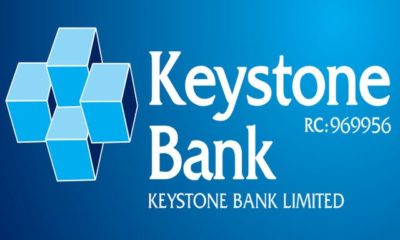The Nigerian Senate has passed a bill amending the Central Bank of Nigeria (CBN) Act to allow the federal government to double its Ways and Means advances from 5% to 10% of the previous year’s revenues.
This amendment unlocks N610 billion in central bank loans for 2024, yet significant legal obstacles remain in the path of accessing the funds.
The Senate’s decision comes as the federal government grapples with financial constraints and seeks innovative solutions to stimulate economic growth.
Under the previous limit, the CBN could only extend loans equivalent to 5% of the federal government’s revenues from the previous year.
With 2023 revenues reported at N6.1 trillion, the new amendment effectively raises the borrowing cap to N610 billion.
However, Section 38 of the CBN Act, which was also amended, includes a critical stipulation that the federal government cannot borrow from the CBN if there are any outstanding balances.
According to the Act, “All Advances made (to the federal government) shall be repaid…by the end of the financial year in which they are granted and if such advances remain unpaid at the end of the year, the power of the Bank to grant such further advances in any subsequent year shall not be exercisable, unless the outstanding advances have been repaid.”
The federal government currently owes the CBN over N30 trillion, significantly complicating the new borrowing plan.
Although the CBN’s records show an outstanding balance of N8.21 trillion in Ways and Means advances at the end of December 2023, when including the N22.7 trillion in securitized loans, the total debt reaches N30.91 trillion.
This legal catch has sparked a debate among financial experts and policymakers. “The reality is that the government can no longer borrow via Ways and Means unless they pay back the outstanding N30 trillion,” a senior business leader told BusinessDay.
“Increasing the limit is of no consequence as it is also illegal to securitize Ways and Means to repay the CBN. What is required is comprehensive remedial legislation.”
Olayemi Cardoso, who was appointed as the CBN governor late last year, has expressed his awareness of the legal constraints and emphasized the need for fiscal responsibility.
Cardoso has reiterated that the CBN will not grant further loans to the federal government until the existing loans are repaid, citing compliance with Section 38 of the CBN Act.
“This is also in compliance with Section 38 of the CBN Act (2007). The Bank is no longer at liberty to grant further Ways and Means advances to the Federal Government until the outstanding balance as of December 31, 2023, is fully settled,” Cardoso told lawmakers.
Finance Minister Wale Edun has also declared an end to the government’s reliance on CBN loans, acknowledging the necessity for fiscal discipline and transparency.
“I am pleased to note the fiscal authorities’ efforts in discontinuing Ways and Means advances,” Edun stated during a Senate session.
The amendment’s timing is critical as Nigeria faces rising inflation fueled by a surge in money supply resulting from the extensive use of Ways and Means advances.
The CBN has tightened monetary policy to counter inflationary pressures, which were exacerbated by the substantial increase in money supply from N52.01 trillion in January 2023 to N68.25 trillion in November 2023.
The Senate’s approval of the N610 billion CBN loan marks a significant step towards addressing Nigeria’s economic challenges, but the outstanding debt must be resolved to make the new borrowing feasible.

 Education4 weeks ago
Education4 weeks ago
 News3 weeks ago
News3 weeks ago
 Business3 weeks ago
Business3 weeks ago
 Technology3 weeks ago
Technology3 weeks ago
 Investment4 weeks ago
Investment4 weeks ago
 Investment3 weeks ago
Investment3 weeks ago
 Telecommunications4 weeks ago
Telecommunications4 weeks ago
 Banking Sector3 weeks ago
Banking Sector3 weeks ago































